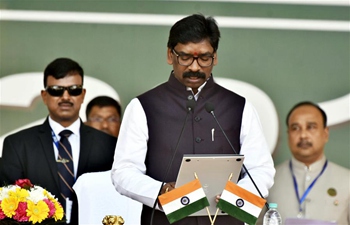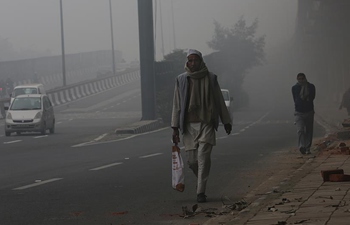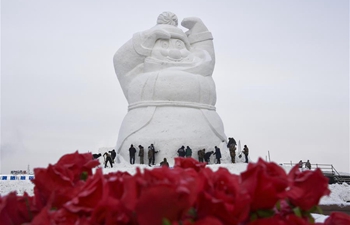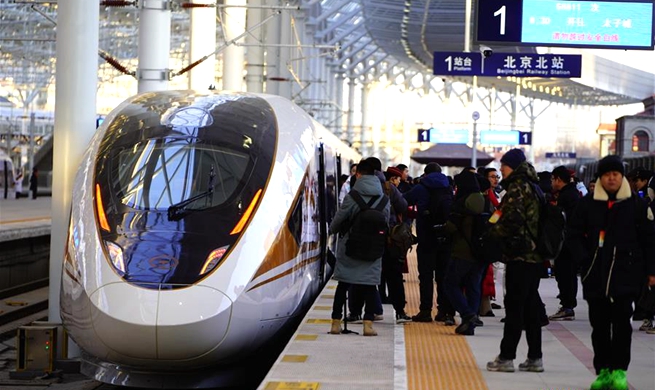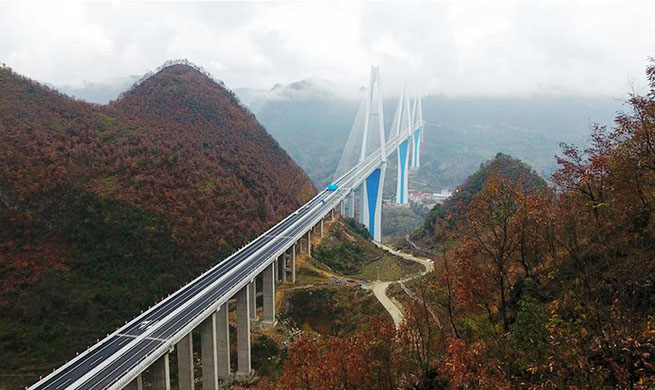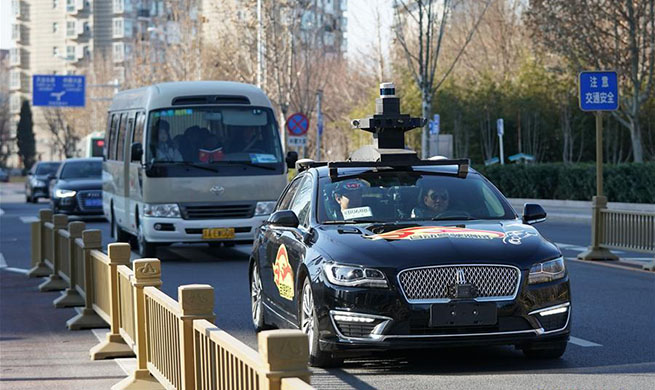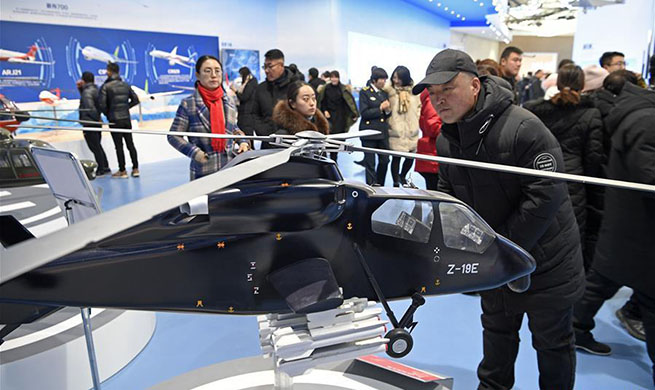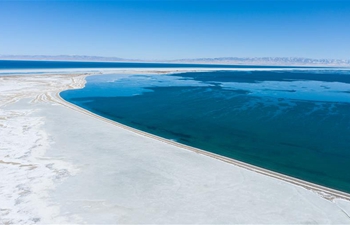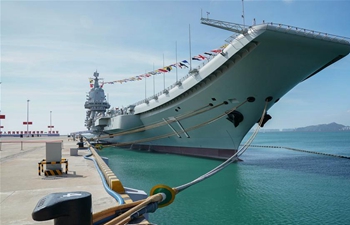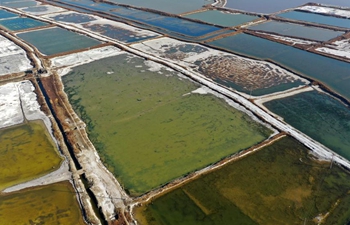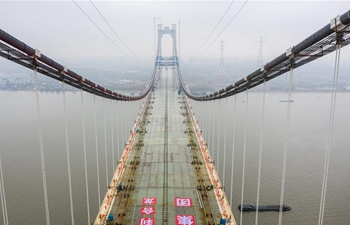BEIJING, Dec. 30 (Xinhua) -- Since the beginning of the new century, the world has entered a new period of rapid development, massive transformations and in-depth adjustments. Profound changes unseen in a century are accelerating and sources of turbulence have substantially increased.
Openness or closeness, mutual exclusion or mutual trust, cooperation or confrontation, win-win or monopoly, the international community needs to make major decisions at the threshold of a new decade in the face of growing instability and uncertainties in the world.
WHERE IS ECONOMIC GLOBALIZATION HEADED?
From the Occupy Wall Street movement to the prolonged Brexit saga and France's Yellow Vests movement, many countries have seen social anxiety and political turmoil.
Over a decade since the global financial crisis, the world is still reckoning with its legacy. Against the backdrop of growing trade protectionism and the rising sentiment of unilateralism, contradictions between growth and distribution, capital and labor, efficiency and fairness have grown more prominent.
As a general trend of the times that cannot be stopped by any country, the world economy became more interconnected with goods, information and capital flowing across national borders.
Economic globalization is an irreversible trend, said Martin Jacques, a senior fellow of the Department of Politics and International Studies at the University of Cambridge.
From 5G commercialization to digital economy and quantum computing, new technologies, new industries, new formats and new models have brought countries closer to each other.
In the new decade, a new wave of scientific and technological development featuring artificial intelligence, clean energy, quantum information and biotechnology will accelerate the shift of the global economy from its traditional drivers of growth to new ones.
The rapid rise of emerging markets and developing countries is bringing huge incremental space for economic globalization. As Martin Wolf, chief economics commentator at the Financial Times, put it, the driving force for future globalization will mainly come from developing countries, especially from Asian countries like China and India.
China, over the past several years, has proposed the Belt and Road Initiative (BRI), hosted the China International Import Expo, advocated and boosted regional economic integration, and launched the Asian Infrastructure Investment Bank and the BRICS New Development Bank.
Based on the concept of win-win cooperation, China is committed to building an open world economy to inject new vitality into economic globalization.
WILL THE WORLD BE SAFER THAN EVER?
Since the beginning of the 21st century, the trend towards political multi-polarization has become more prominent. While the unilateral moves of some countries seeking absolute security and maintaining hegemony have become more aggressive, world peace is facing new deficits.
The United States' formal withdrawal from the Intermediate-Range Nuclear Forces Treaty has raised fears of a new arms race. The peace deficit goes far beyond that. Hegemonism, power politics and neo-interventionism have all intensified. Some countries, for their own interests, have fabricated excuses to infringe on other countries' sovereignty, or used "color revolutions" to create turmoil.
As the world seeks solutions to address global challenges at the doorstep of a new decade, China, an important force for safeguarding world peace and stability and promoting the advancement of human civilization, calls for consultation and understanding to address the trust deficit, as well as joint efforts and mutual assistance to address the peace deficit.
China has proposed a new concept of common, comprehensive, cooperative and sustainable security, stressing dialogue rather than confrontation, and partnerships rather than alliances.
China has called on countries to "put mutual respect and mutual trust in the first place, make use of dialogue and consultation, seek common ground while shelving and narrowing differences."
Facing a complex and changing world, China has offered "a new example" and "a new possibility" to the world, said Jacques.
WHERE IS THE SHIP OF THE FUTURE HEADED?
Since the end of World War II, the global governance system led by Western countries has gradually taken shape. However, the West began to retreat from the public domain of global governance after the 2008 international financial crisis. The United States, once at the helm of globalization, now engages in "America First" rhetoric and has dropped out of a number of deals and groups.
On Dec. 11, the supreme court of the World Trade Organization (WTO) was practically paralyzed after the United States turned down a last-ditch petition to reappoint one of its four remaining judges, the first time since the establishment of the WTO.
Three days later, the United Nations (UN) Climate Change Conference came to an end after an unprecedentedly long extension and negotiators failed to reach an agreement on Article 6 of the 2015 Paris Agreement about the details of carbon market mechanisms.
The two issues reflected the unprecedented crisis facing the rules-based global multilateral trading system and the sense of helplessness of the international community when dealing with major challenges.
Therefore, improving global governance is urgently needed in a world plagued by threats such as climate change, cyber security, refugee crisis, terrorism and regional conflicts.
Cooperation among BRICS countries has served as a telling example in this regard. The group has developed from a concept questioned by many Western economists into a model of institutionalized cooperation between emerging market economies and developing countries.
Among them, China's experience in global governance has garnered the attention of the world. China is committed to improving global governance, upholding a vision of global governance featuring extensive consultation, joint contribution and shared benefits, and building a community with a shared future for mankind.
China has put forward the BRI, which after more than six years of development, has brought people of all countries a real sense of participation, gain and happiness.
Ross Terrill, a research associate at Harvard University's Fairbank Center, said China's global governance idea focusing on the goal of building "a community of shared future for all humankind" has shown the country's strategic thoughts on long-term development of bilateral ties between China and other countries, and has injected new impetus into the effort to establish a new world order.




